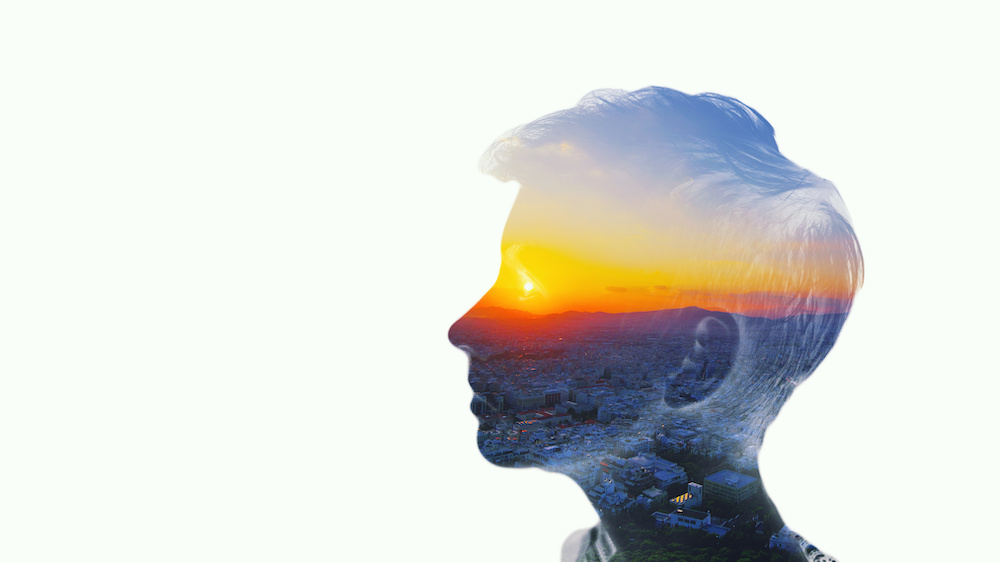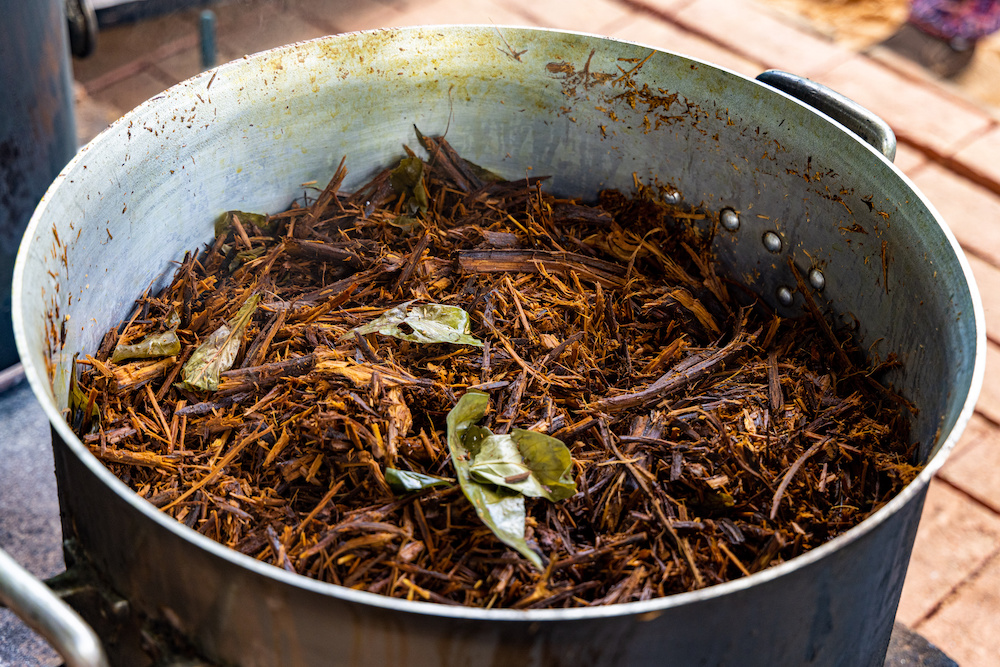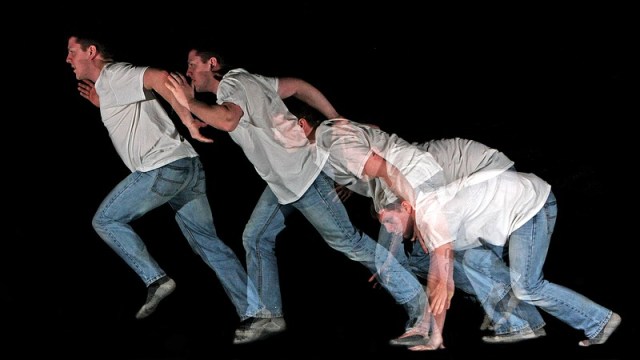Building peace with psychedelics: Here’s what happened when Palestinians and Israelis took ayahuasca together

- Over the past two decades, there has been a renaissance of research on the therapeutic potential of psychedelics.
- A 2021 observational study examined the interactions of Palestinians and Israelis who participated in ayahuasca ceremonies together.
- The results suggest that psychedelics may have a role to play in building peace between groups that have historically been mired in conflict.
“And God said, ‘Let the land produce vegetation: seed-bearing plants and trees on the land that bear fruit with seed in it….’” Genesis 1:11
“He created the heavens without pillars….and We sent down water from the cloud, then caused to grow [on the earth] vegetation of every noble kind.” Surah 31:10
Over the past two decades, the world has witnessed the depressing consequences of military conflicts in Iraq, Afghanistan, Syria, Yemen, and elsewhere — not to mention the specter of another major conflict involving Iran. The fallout from these conflicts should compel experts in international relations and foreign policy to engage in more courageous and visionary thinking about how to address these problems, which have deep roots in collective trauma, as well as sectarian narratives that are reinforced by trauma.
Psychedelics may represent an underutilized tool for building peace between groups with longstanding conflicts.
A growing body of scientific research is demonstrating that psychedelics, in combination with psychotherapy or structured ceremonies, have the potential to help people heal from psychological ailments such as trauma and post-traumatic stress, which correlate with a diminished capacity for empathy and emotional regulation, and are associated with an increased probability of acting on violent impulses. Furthermore, psychedelics are known to relax rigid narratives and strengthen connections between people.
We believe that psychedelics can contribute to peace-building initiatives by healing collective trauma, cultivating new empathetic connections between people and nations, and attenuating the psychological drivers of conflict. By doing so, these substances can enable new insights and solutions to emerge.
In recent years, scientists, therapists, and activists affiliated with Imperial College London, Hebrew University, Kibbutzim College, the Multidisciplinary Association for Psychedelic Studies (MAPS), and the University of Haifa have been conducting intriguing observational research on Israelis and Palestinians who have been participating together in ayahuasca ceremonies.

Ayahuasca is a psychoactive brew that contains DMT (N, N-dimethyltryptamine), which is one of the most powerful psychedelic substances on the planet. This combination of psychoactive plants, which communities in the Amazon have long regarded as sacred medicines, can spark profoundly visionary and empathic states of consciousness.
In May 2021, researchers published a paper in Frontiers in Pharmacology that described encounters between Palestinians and Israelis after they ingested the brew together. A few excerpts of interviews from the study are especially moving, and they highlight how psychedelic experiences can help people process collective trauma, lead to new empathic bonds, and shift rigid narratives. (Disclosure: Dr. Leor Roseman, one of the authors of this piece, is a contributor to the 2021 study.)
New insights with the help of psychedelics
A Jewish-Israeli participant reflected upon his experience listening to one of his Arab acquaintances during the ceremony: “Suddenly you hear the language you most hated…and suddenly it is sending you into love and light, and that’s the way it always is.”
Another Jewish-Israeli participant concurred: “When someone is saying ‘Allahu Akbar’ in a ceremony, one can feel how the room is flooded with love and how people burst the limits of their normal consciousness and connect to something beyond. […] It is a moment of great expansion…and suddenly when everyone feels it and connects to more truth, to more love. […] This is a huge process of healing…”
A Palestinian participant in one ayahuasca ceremony recalled a vision in which he “had this weird experience of being in the body of an Israeli soldier. […] The whole experience was the eye coming down to look for shooting and as the trigger is pulled. […] I could feel him after, this is painful, this is not an easy life after.”
A Palestinian similarly described a vision of a past life in which she was a Jewish combatant who was killed in an unspecified conflict.
Another Jewish-Israeli who was formerly a member of an elite Israeli military unit recalled a “quite real” vision in which he was conducting a house raid and then re-experienced it from the perspective of the Palestinian family. In this vision, he experienced the agony he inflicted upon the Palestinian family, and this motivated him to want to redress the unjust structure of which he is part.
These powerful experiences — which can enable people to cross the psychological bridge not only from cognitive to emotional empathy, but also, momentarily, to a profound state of sympathy — have clear peace-building implications. The feelings of “expansion” and “awe” that are associated with these moments of recognition suggest that rigid narratives are being modified, and that one can perceive their connection to the other in a new and surprising way.
Cautious optimism for psychedelics as a peace-building tool
Psychedelics alone are not a panacea, however. Their effects are dependent on the context in which they are used. Some experts warn that psychedelics, when not administered responsibly in the right context, can exacerbate paranoia and cause people to dig even deeper into exclusivist ideologies or other hardened ego defenses. Therefore, they advise that volunteers with severe conflict-related trauma should receive prior psychotherapeutic treatment before being considered for psychedelic-assisted peace-building sessions that take place in more complex group settings.
Furthermore, strong experiences of connection and harmony between participants can sometimes lead to a “spiritual bypassing” of unjust political realities, and can even suppress actions toward peace and liberation. Considering these risks, an intentional use of psychedelics for peace-building should include political education and discussion as part of the preparation for the experience. Ultimately, more research is needed to better understand the benefits and potential risks of using psychedelics in peace-building initiatives.
Still, there is reason for cautious optimism that scientific research into the potential peace-building applications of psychedelics could yield great dividends. We propose that psychedelic experiences can:
- serve as a powerful complement to psychotherapy or spiritual ceremony for the purpose of healing from trauma,
- augment efforts to moderate rigid conflict narratives that are often rooted in and reinforced by trauma,
- lead to novel and creative insights that can motivate people to change unjust society around them,
- and construct or strengthen empathic bridges between those locked in violent conflict.
Being able to see the world through the eyes of one’s enemy is essential to making peace. To whatever extent psychedelics such as ayahuasca enable us to do so, they could help positively transform our world — from the negotiating table to the battlefield.





